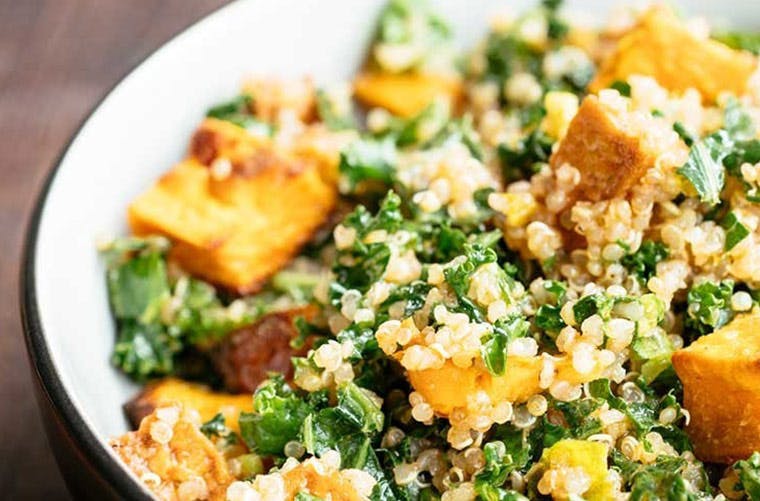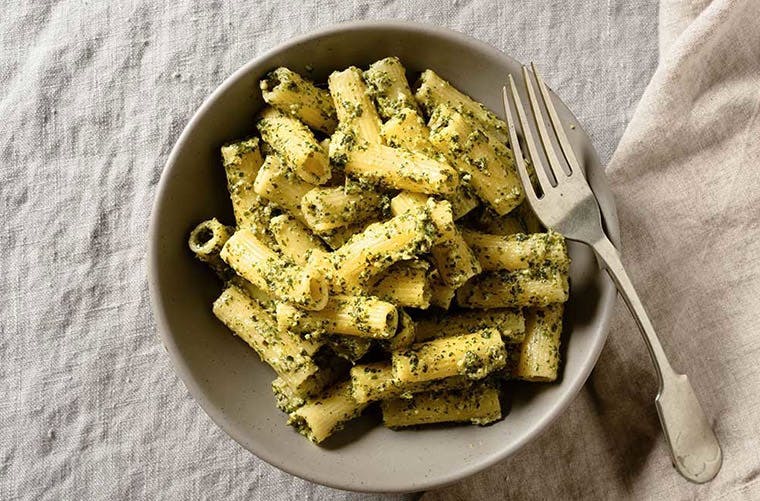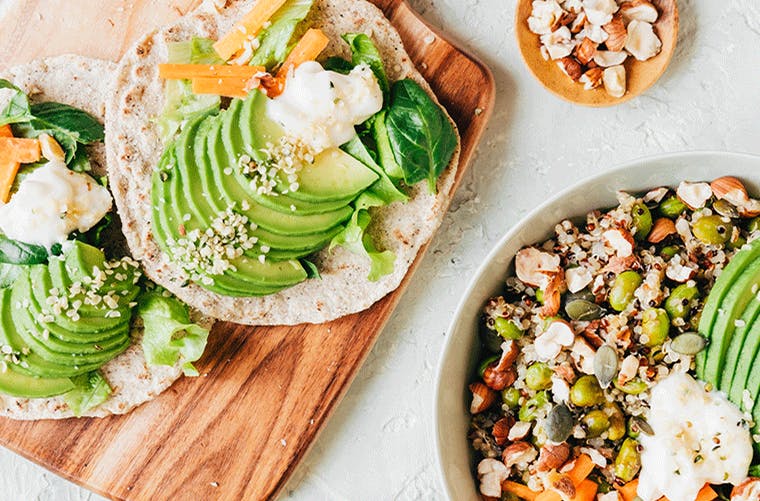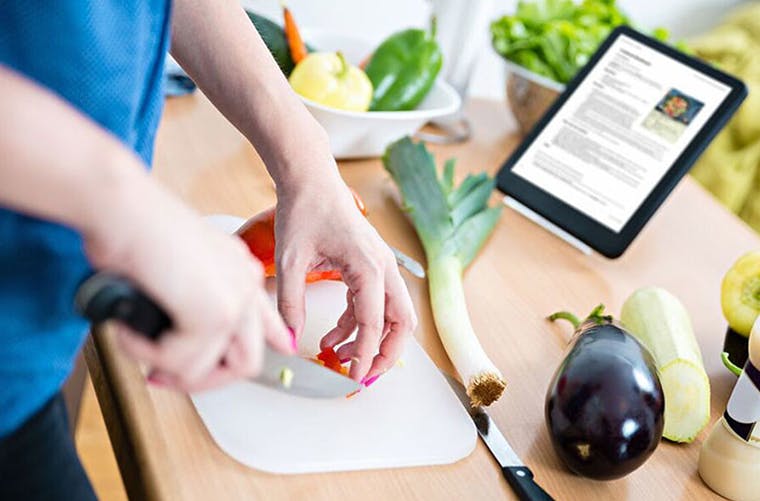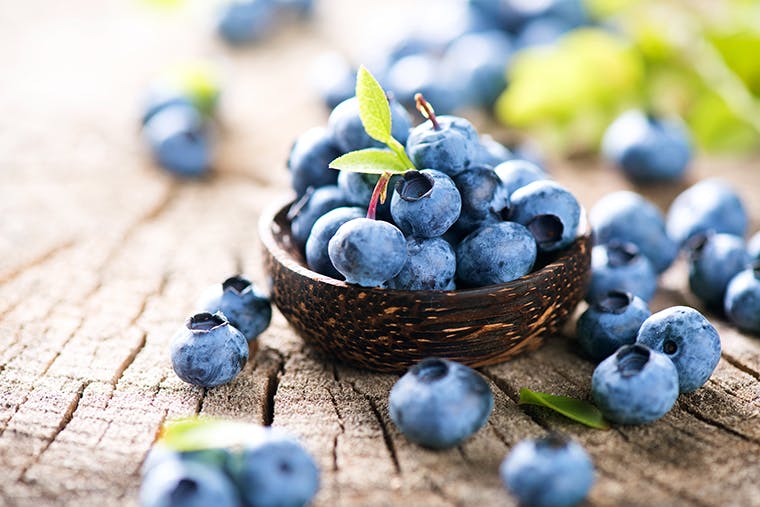Best Sources of Vitamin C: Foods to Reach Your Daily Needs
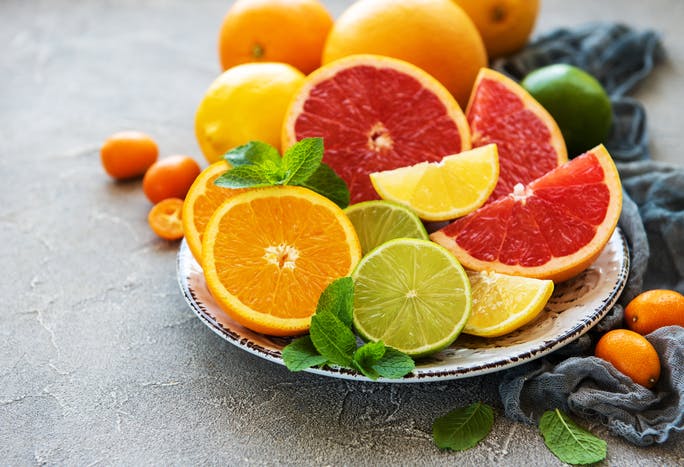
Key Takeaways:
- Vitamin C is an essential water-soluble vitamin that supports collagen production, immune function, iron absorption and the neutralization of free radicals.1
- How much vitamin C you need depends on your age and gender: adult men require 90 mg daily, and women need 75 mg.2
- The best sources of vitamin C are fruits and vegetables, such as bell peppers, citrus fruits, cruciferous vegetables and tomatoes.2
- If you’re concerned about meeting your vitamin C needs through food alone, ask your doctor about taking a supplement to help meet your daily recommended intake.
How well do you know vitamin C? You probably know it’s the nutrient most commonly associated with a glass of orange juice. But beyond oranges and citrus fruits, do you know what other foods are high in vitamin C, or why you even need it in the first place? Let’s dive into vitamins 101: First stop, vitamin C.
What Is Vitamin C?
Vitamin C, also known as ascorbic acid, is a water-soluble vitamin, meaning it dissolves in water and travels through the body after ingestion.1 Being a water-soluble vitamin also means the body doesn’t store it well. This is why it’s important to meet the daily recommended intake through a healthy diet and supplements, if recommended by your doctor.
What Does Vitamin C Do?
Vitamin C is essential to our bodies because it plays a role in several vital functions:
- Collagen production. Vitamin C is crucial for the synthesis of collagen in connective tissue in your skin and throughout your body.1
- Immune support. It supports immune health by stimulating the activity of immune cells, such as T cells and natural killer cells, which help defend the body against harmful pathogens.1
- Antioxidation. Vitamin C is a powerful antioxidant that neutralizes free radicals, unstable molecules that damage cells.1
- Iron absorption. Consuming non-heme (plant-based) iron sources along with vitamin C enhances iron absorption, another essential mineral.
How Much Vitamin C Do You Need Each Day?
The amount of vitamin C each person needs can vary by age and gender. Generally, children need less vitamin C than adults. Adult men need approximately 90 mg a day, and women need 75 mg to reach a daily value (DV) of 100%.2
Here is how much vitamin C you need, based on age and gender:2
Children 4–8 years |
25 mg |
Children 9–13 years |
45 mg |
Teens 14–18 years (boys) |
75 mg |
Teens 14–18 years (girls) |
65 mg |
Adults (men) |
90 mg |
Adults (women) |
75 mg |
Pregnant women |
85mg |
Breastfeeding women |
120mg |
What Foods Contain Vitamin C?
The foods most rich in vitamin C are vegetables and fruits. Try incorporating the following foods into your diet (keep in mind that cooking can reduce vitamin C content):3
Oranges
You already know that oranges are powerhouses of vitamin C. How many MG of vitamin C in an orange, you might ask? There are 70 mg in a medium-sized orange, up to 78% of your daily value (DV).2 Or go for a refreshing cup of orange juice—three-quarters of a cup contains 93 mg, 103% of your DV.2
Grapefruit
Like any other citrus fruit, grapefruit is another excellent source of vitamin C. In one medium grapefruit, there are 39 mg, 43% DV.2 Three-quarters of a cup of grapefruit juice has even more at 70 mg of vitamin C, 78% DV.2
However, grapefruit can interact with certain medications and may affect how they work in your body.3 If you’re unsure whether your medication is affected by grapefruit, it’s a good idea to check in with your doctor or a pharmacist.
Red and Green Peppers
Good things come in red and green; peppers are packed with crunch, flavor and vitamin C. A half cup of sweet, raw red pepper has a whopping 95 mg of vitamin C per serving—that’s 106% DV.2 Green bell peppers are also rich in vitamin C, providing 60 mg per half-cup serving, or 67% DV.2
Kiwi
These fuzzy little green fruits boast a high amount of vitamin C. One medium kiwifruit contains 64 mg, 71% DV, and it’s hard to snack on just one, so you’ll have no problem meeting your daily intake.2
Broccoli
Broccoli is one of the most vitamin C-rich vegetables. Just half a cup of cooked broccoli provides about 51 mg of vitamin C, which is approximately 57% DV.2
Potatoes
Potatoes are among the most versatile and nutritious foods, and they’re a surprising source of vitamin C. One medium baked potato contains 17 mg of vitamin C.2
Brussels Sprouts
One of the best vegetables for vitamin C, a half cup of cooked Brussels sprouts provides 48 mg of vitamin C, 53% DV.2
Cauliflower
Noticing a trend here? Cruciferous vegetables are packed with vitamin C, and cauliflower is another one. A half cup of raw cauliflower provides 26 mg.2
Strawberries
Not only are they delicious, but strawberries are also very high in vitamin C. A half cup of fresh, sliced strawberries has 49 mg of vitamin C, over half your DV.2
Cabbage
Cabbage is another cruciferous vegetable high in vitamin C, with a half cup of cooked cabbage containing 28 mg.2
Tomatoes
Yes, a tomato is technically a fruit, and a vitamin C-rich one at that. One raw medium tomato contains 17 mg of vitamin C. Three-quarters of a cup of tomato juice will serve you 33 mg.2
The Foods Highest in Vitamin C
Take a look at the top foods for vitamin C, their serving sizes, mg, and DV percentage:
| Food | Serving Size | Vitamin C (mg) | % Daily Value (DV) |
| Orange (whole) | 1 medium | 70 mg | 78% |
| Orange Juice | ¾ cup | 93 mg | 103% |
| Grapefruit (whole) | 1 medium | 39 mg | 43% |
| Grapefruit Juice | ¾ cup | 70 mg | 78% |
| Red Bell Pepper | ½ cup (raw) | 95 mg | 106% |
| Green Bell Pepper | ½ cup (raw) | 60 mg | 67% |
| Kiwi | 1 medium | 64 mg | 71% |
| Broccoli | ½ cup (cooked) | 51 mg | 57% |
| Potato | 1 medium (baked) | 17 mg | 19% |
| Brussels Sprouts | ½ cup (cooked) | 48 mg | 53% |
| Cauliflower | ½ cup (raw) | 26 mg | 29% |
| Strawberries | ½ cup (sliced, fresh) | 49 mg | 54% |
| Cabbage | ½ cup (cooked) | 28 mg | 31% |
| Tomato (raw) | 1 medium | 17 mg | 19% |
| Tomato Juice | ¾ cup | 33 mg | 37% |
Other Ways to Get Vitamin C
While fruits and vegetables are the best way to get vitamin C, you can also get additional vitamin C from multivitamins or dietary supplements, like Emergen-C Daily Immune Support* fizzy drink mix or Zero Sugar Immune Support Gummies.* Talk to your doctor before taking any supplements to make sure it’s the right choice for you and your body.
With this knowledge about the best sources of vitamin C, you can modify your diet and add more vitamin C. If you're wondering if you're getting enough specific vitamins for your age and lifestyle, contact your doctor or healthcare provider. They can assess you to make sure you're getting the vitamins you need and help develop a plan if needed.
Learn more about vitamin C,commonly asked questions, health topicsimmune health 101 on our site.
*This statement has not been evaluated by the Food and Drug Administration. These products are not intended to diagnose, treat, cure or prevent any disease.
SOURCES
1. Vitamin C. Harvard School of Public Health. https://www.hsph.harvard.edu/nutritionsource/vitamin-c/. Accessed 07/01/2025.
2. Vitamin C: Fact Sheet for Professionals. National Institutes of Health. https://ods.od.nih.gov/factsheets/VitaminC-HealthProfessional/. Accessed 07/01/2025.
3. Grapefruit and Some Drugs Don’t Mix. FDA. https://www.fda.gov/consumers/consumer-updates/grapefruit-juice-and-some-drugs-dont-mix. Accessed 07/01/2025.





